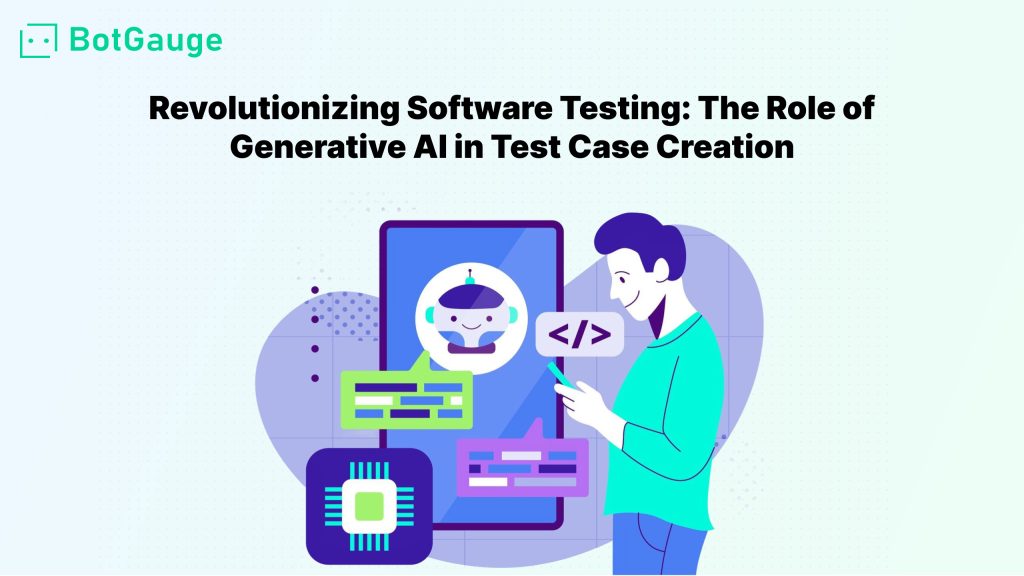Anyone can automate end-to-end tests!
Our AI Test Agent enables anyone who can read and write English to become an automation engineer in less than an hour.
Table Of Content

Table Of Content
Generative Artificial Intelligence (Generative AI) has ushered in a new era of possibilities, particularly in software testing. This article explores the profound impact that Generative AI can have on testers’ lives, focusing on how it facilitates the creation of test cases and significantly eases their testing responsibilities.
Generative AI excels in understanding patterns and structures within datasets. By leveraging this capability, it can automatically generate test cases based on existing code, specifications, and historical testing data. This process not only saves time but also ensures comprehensive coverage of various scenarios, reducing the likelihood of overlooking critical test scenarios.
Traditional test case creation often relies on predefined scenarios and user inputs. Generative AI, however, has the ability to explore a broader range of test scenarios by intelligently generating inputs and conditions that may not be immediately apparent to human testers. This exploratory approach enhances the thoroughness of testing, uncovering potential edge cases and vulnerabilities.
In agile development environments where code changes frequently, maintaining up-to-date test cases can be challenging. Generative AI in BotGauge addresses this challenge by dynamically adapting to code changes. When modifications are made to the codebase, the AI can automatically adjust the generated test cases, ensuring that the testing suite remains aligned with the evolving application.
Generative AI can analyze historical data, bug reports, and user feedback to identify areas of the application that are prone to defects. This information is then used to prioritize test case generation, focusing on high-risk areas. This risk-based testing approach optimizes testing resources, directing them towards the aspects of the application that are more likely to harbor issues.
In modern software applications, scenarios involving complex interactions and dependencies can be challenging to cover comprehensively. Generative AI excels in handling such complexity, generating test cases that simulate intricate user journeys and system interactions. This capability ensures that the testing process adequately addresses real-world usage scenarios.
Testers often find themselves burdened with repetitive testing tasks, especially during regression testing. Generative AI, with its ability to automate the generation of test cases and adapt to code changes, significantly reduces the manual effort required for repetitive testing. This frees up testers to focus on more strategic aspects of quality assurance.
Generative AI systems continuously learn from the feedback loop generated by testing results. As more tests are conducted and issues are identified, the AI evolves to improve its test case generation algorithms. This iterative learning process enhances the effectiveness of test case creation over time, contributing to a more robust and adaptive testing environment.
The integration of Generative AI in test case creation represents a paradigm shift in software testing. By automating the generation of test cases, adapting to code changes, and exploring complex scenarios, Generative AI empowers testers to elevate the quality and efficiency of their testing efforts. As the technology continues to evolve, its impact on software testing promises to redefine the role of testers and usher in an era of more effective, comprehensive, and adaptive quality assurance processes.
Share
Curious and love research-backed takes on Culture? This newsletter's for you.
View all Blogs
Our AI Test Agent enables anyone who can read and write English to become an automation engineer in less than an hour.